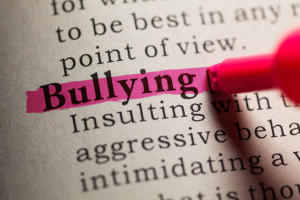
In this multi-part series, we have already explored several warning signs of bullying every parent should look out for. Recent studies show that 64% of victims will not report acts of bullying, regardless of the pain and torture they are experiencing. Bullying can lead to depression, anxiety, and thoughts of suicide in children, teens, and young adults. Protect your child from these reactions by watching for the signals below.
Be sure to check out Part 1 of our guide to see the first set of bullying indicators.
Antisocial Behaviors
Not all children are social butterflies, but most are able to make at least a few friends in school. If your child suddenly loses friends or beings to withdraw himself from social activities, there may be another issue going on. Bullying can make a child fear getting close to other people, and it can cause him to focus on self-preservation. In this case, it is easier to avoid friends than to risk getting hurt again. See if your child is avoiding social situations and inquire as to why that might be.
Declining Grades
If your child loses interest in school or starts to get bad grades out-of-character, bullying may be the hidden cause. There are several reasons why your child’s grades may suffer after bullying. The stress may cause your child to lose focus in class or fear going to class altogether. Depression, anxiety, and social reclusiveness may also play a role in a lowered grade point average. Before you jump to punish your child for bad grades, make sure there isn’t an alternative issue going on in the background.
Note that the poor grades could either occur in one specific class or across the board, depending on how the child is reacting to the bullying. If it is just one class, chances are the bully is present there.
Self-Destructive Behaviors
Being bullied can make a child feel helpless, worthless, or undeserving of love and happiness. This can lead to self-destructive behaviors, like suicide attempts or self-harm. A study in 2012 from the Journal of Adolescent Health showed that victims of bullying were 2.4 times more likely to have thoughts of suicide and 3.3 times more likely to have attempted suicide than their non-bullied peers. Whether your child is being bullied or not, any self-harm or suicidal efforts should be monitored and treated through a licensed child counselor.
Visit Part 3 of our guide to learn even more bullying warning signs you should be aware of.

